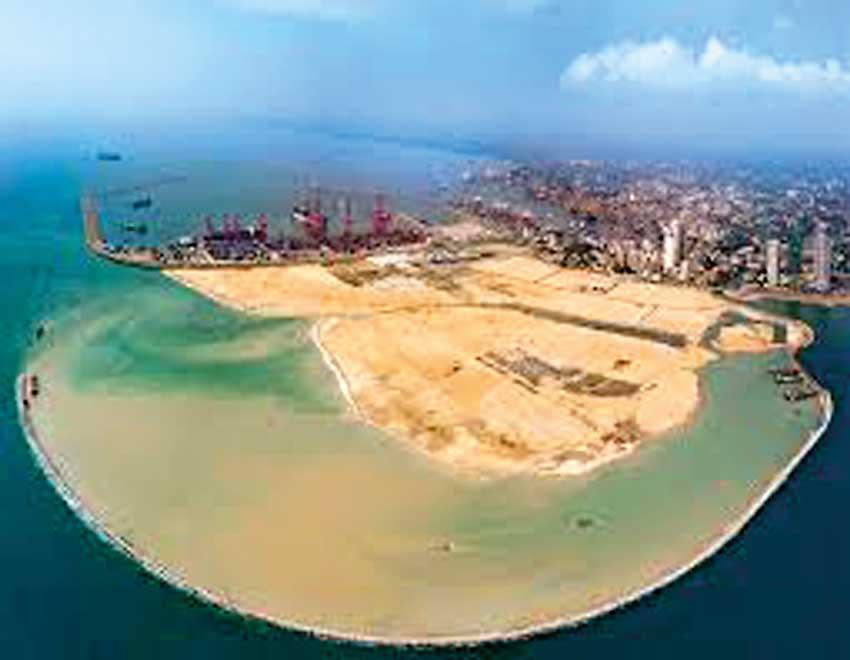Reply To:
Name - Reply Comment

Moody’s Investors Service remains optimistic that the current lackluster record of foreign direct investment (FDI) flows to Sri Lanka would turn a corner with start-of-the-art affiliated projects in the Colombo Port City and the construction of investment and export zones near ports over the coming years, amid emerging signals that the two sites are already on investors’ radar.
For instance, Moody’s, which currently maintains a cautious view on the country, has observed that the Hambantota investment zone had attracted interests from various manufacturing and chemical companies.
In October 2019, the Board of Investment (BOI) approved investment proposals for a refinery and other related projects at the Hambantota port by Sugih Energy International.
The company is planning to put up a US$ 24 billion oil refinery and petrochemical complex with the capacity to process 21 million tons of petrochemical material and 420,000 barrels of oil per day once the project is completed within five years, Moody’s said. “While investment flows related to the project have not begun, benefits from employment creation in medium-to-high-end skilled work and significant dollar-export revenue would support economic competitiveness and bolster foreign exchange reserves,” the rating agency said in a recent report.
“Additional projects include the Southwest and Northeast economic zones which, if implemented, would help integrate and expand development across the country.
Greater intra-island connectivity would foster productivity gains and opportunities for greater private sector investment, which could support future growth potential,” Moody’s said roughly a month after its downgrade of Sri Lanka’s sovereign rating to Caa1 from B, with a Stable outlook.
The rating agency further noted that the country’s focus on greater trade diversification, its natural advantage of being on key shipping lanes and expanded port capacity, which will ultimately result in increased trade within South Asia, could trigger foreign manufacturers to set up bases within these new port-based export processing zones. The likely new direct inflows will also re-balance the country’s investment mix, which is currently skewed towards non-tradable sectors such as housing and property development. During the first six months this year Sri Lanka received US$ 345 in FDI, and the country eyes to end the year with US$ 750 million, a commendable feat in the middle of a pandemic when the investor community practices wait-and-see approach before committing any big money, and for a country, which has a relatively weak record in attracting direct investments.
FDI flows particularly slowed in 2019 due to Easter bombings, political uncertainty over elections and tepid economic growth. FDI in 2019 was just US$ 758 million, which is around 0.9 percent of GDP, less than half of what was realised in 2018, Moody’s data showed.
Direct investments to Sri Lanka particularly slowed during 2018 and 2019 due to lower FDIs from China, “reflective of the completion of large number of investments in real estate and telecommunications, as well as the US$ 1.4 billion received for the construction (by China Harbour Engineering Company Ltd) of the Colombo Port City, one of Sri Lanka’s largest FDI projects, which came in during the 2016-18 period,” Moody’s said. The United States last week offered to promote US investments in Sri Lanka as a counterbalance to the China’s influence in the country, during the brief visit made by Secretary of State, Mike Pompeo as part of his Asian diplomatic tour. Moody’s in their report reiterated that the Sri Lanka’s long-term growth potential hinges largely on foreign investments, diversified trade and tourism.
“If effective and sustained, such steps would stimulate higher growth over the medium to longer term and mitigate balance of payment pressures by reducing the reliance on debt-creating foreign exchange inflows to bolster economic resilience,” the rating agency said.